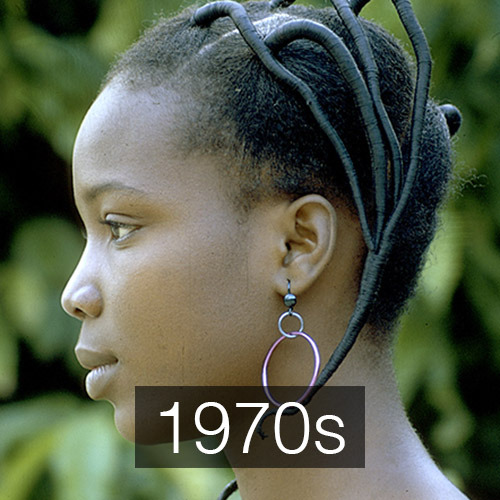ukpuru:100 Years of Beauty in NigeriaI decided to do a version of 100 years of beauty (and fashion)
ukpuru:100 Years of Beauty in NigeriaI decided to do a version of 100 years of beauty (and fashion) in Nigeria inspired by Cut. People were requesting they should do certain cultures and nations so this is my version for Nigeria as a Nigerian. Nigeria is quite diverse, more so than many other places, so these looks are a gloss over general styles and trends. So my observations are as follows. [+] are links to the images.1910s: Birth of ‘nationhood’; Northern Nigeria and Southern Nigeria Protectorates, enforced by the British government on diverse societies in the early 1900s, are combined by Lugard to form a single Nigeria. There are still major movements against the British Imperialists so fashion is still very indigenous. [+]1920s: Women pick up western clothing more widely, especially for work. Flowing gowns and one-pieces. ‘Indigenous’ hairstyles. Wider negotiations and tension between indigenous people and the British government over their land, property and rights. Aba Women’s Riots. [+]1930s: Children who have grown up entirely under the British are in their teens and adulthood. Western education has spread wider, many more are in the civil service. [+]1940s-50s: Independence movements and sentiments are strong (across Africa), especially in universities. Nationalistic sentiment transcends. Indigenous attire is modernised. Chinua Achebe’s Things Fall Apart releases. Discovery of oil in the Niger Delta. [+]1960s: Independence | Nigeria-Biafra war. [+]1970s: Nation building after the war, Black Power and Pride worldwide influences a return to more complex indigenous hair styles, especially with thread. Military government seizes power. [+]1980s: Military government in power, although Nigeria is more stable, including economically, shown in fashion, ‘lacy’ indigenous styles. Heavy dependence on oil from the Niger Delta. Gold. Corruption under the military government. [+]1990s: ‘Rich’ flashy styles from ‘big women’ and ‘big men’s’ wives. Many linked to corruption. Ken Saro-Wiwa, activist for the Ogoni in the oil-producing Niger Delta, is executed. Sani Abacha dies. Military government topples. Rise of Nollywood (as we know it) with ‘home video’ cassettes. [+]2000s: Nigeria tries democracy again. Niger Delta is an environmental and social disaster. MEND. Bakassi Boys, òdíèshí! Bakassi Gone. Fashion practical, dressed down, braids and natural hair extensions. Nigerian entertainment industry ekes out. [+]2010s: Explosion of Nigeria entertainment ‘Afro-beat’ (Afro-pop, Afro-rap) and Nollywood (films) spread across Africa and the diaspora. Boko Haram in the north east being subdued by the Nigerian military. Glam, Brazilian weaves and lace fronts, High fashion designer brands, Blackbooris, etc. [+] -- source link
Tumblr Blog : ukpuru.tumblr.com
#nigeria#fashion









